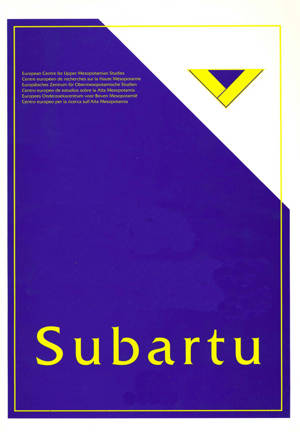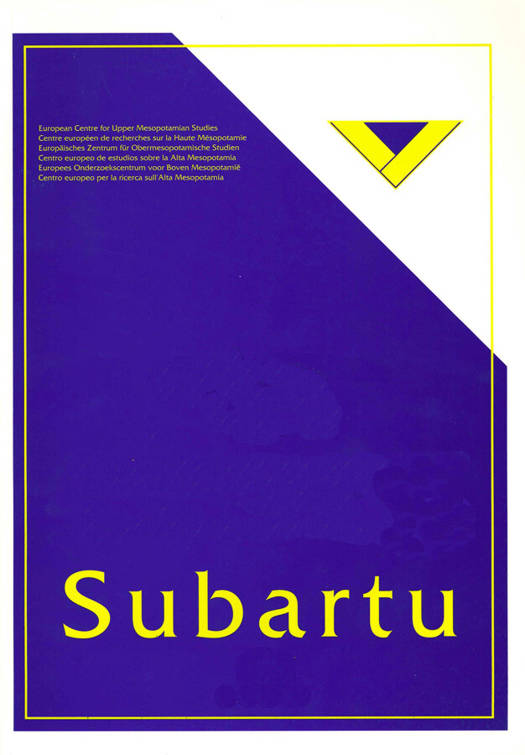
- Retrait gratuit dans votre magasin Club
- 7.000.000 titres dans notre catalogue
- Payer en toute sécurité
- Toujours un magasin près de chez vous
- Retrait gratuit dans votre magasin Club
- 7.000.000 titres dans notre catalogue
- Payer en toute sécurité
- Toujours un magasin près de chez vous
Das mittelassyrische Tontafelarchiv von Giricano/Dunnu-Sha-Uzibi
Karen Radner
Livre broché | Allemand
31,80 €
+ 63 points
Description
This volume is devoted to the epigraphic finds from Giricano, a tell in the Upper Tigris region of south-eastern Turkey. It is the first of the final reports recording the excavations carried out at this site between 1999 and 2003 by a team from Munich University directed by Andreas Schachner. In this book Karen Radner publishes an archive of fifteen cuneiform tablets that were found in a sealed pottery vessel. The texts constitute a coherent group of legal texts written within one year and can be dated to the reign of Assur-bel-kala of Assyria (10731056 B.C.). They deal with affairs in a specific type of Middle Assyrian agricultural establishment, which was named Dunnu-Sa-Uzibi and may be identified with the site of Giricano. These texts deal with a time and place in history that hitherto was almost completely unknown, the late second millennium in the Upper Tigris region. In her publication Karen Radner integrates the new data into the wider context of the ancient geography and the history of the region and discusses the significance of this archive for our knowledge of Assyrian legal practice and economy. These texts also provide us with welcome new information on the terminology for the production of bulghur (cracked wheat) and shed some light on a largely undocumented stage in the development of the Assyrian language. In addition to Radners philological treatment, Andreas Schachner presents a detailed study of the archaeological context of the find and Michael Roaf describes the recovery and preservation of the fragile texts, the first unfired clay tablets to be unearthed in Turkey; his richly illustrated report will serve as a valuable field manual to other archaeologists faced with a similar task. In a concluding chapter, Radner and Schachner combine archaeological and philological data in order to trace the development of the settlement pattern in the Upper Tigris region from the Mittani period to the Neo-Assyrian period and to investigate the agricultural organisation of the area.
Spécifications
Parties prenantes
- Auteur(s) :
- Editeur:
Contenu
- Nombre de pages :
- 156
- Langue:
- Allemand
Caractéristiques
- EAN:
- 9782503515816
- Date de parution :
- 28-12-04
- Format:
- Livre broché
- Format numérique:
- Trade paperback (VS)
- Dimensions :
- 208 mm x 292 mm
- Poids :
- 635 g







